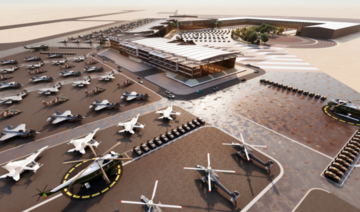In Boeing Co's factory of the future, immersive 3-D engineering designs will be twinned with robots that speak to each other, while mechanics around the world will be linked by $3,500 HoloLens headsets made by Microsoft Corp.
It is a snapshot of an ambitious new Boeing strategy to unify sprawling design, production and airline services operations under a single digital ecosystem — in as little as two years.
Critics say Boeing has repeatedly made similar bold pledges on a digital revolution, with mixed results. But insiders say the overarching goals of improving quality and safety have taken on greater urgency and significance as the company tackles multiple threats.
The planemaker is entering 2022 fighting to reassert its engineering dominance after the 737 MAX crisis, while laying the foundation for a future aircraft program over the next decade - a $15 billion gamble.
It also aims to prevent future manufacturing problems like the structural flaws that have waylaid its 787 Dreamliner over the past year.
"It's about strengthening engineering," Boeing's chief engineer, Greg Hyslop, told Reuters in his first interview in nearly two years. "We are talking about changing the way we work across the entire company."
After years of wild market competition, the need to deliver on bulging order books has opened up a new front in Boeing's war with Europe's Airbus, this time on the factory floor.
Airbus Chief Executive Guillaume Faury, a former automobile research boss, has pledged to "invent new production systems and leverage the power of data" to optimize its industrial system.
Boeing's approach so far has been marked by incremental advances within specific jet programs or tooling, rather than the systemic overhaul that characterizes Hyslop's push today.
The simultaneous push by both plane giants is emblematic of a digital revolution happening globally, as automakers like Ford Motor Co and social media companies like Facebook parent Meta Platforms Inc shift work and play into an immersive virtual world sometimes called the metaverse https://www.reuters.com/technology/what-is-metaverse-2021-10-18.
So how does the metaverse - a shared digital space often using virtual reality or augmented reality and accessible via the internet - work in aviation?
Like Airbus, Boeing's holy grail for its next new aircraft is to build and link virtual three-dimensional "digital twin" replicas of the jet and the production system able to run simulations.
The digital mockups are backed by a "digital thread" that stitches together every piece of information about the aircraft from its infancy - from airline requirements, to millions of parts, to thousands of pages of certification documents - extending deep into the supply chain.
Overhauling antiquated paper-based practices could bring powerful change.
More than 70% of quality issues at Boeing trace back to some kind of design issue, Hyslop said. Boeing believes such tools will be central to bringing a new aircraft from inception to market in as little as four or five years.
"You will get speed, you will get improved quality, better communication, and better responsiveness when issues occur," Hyslop said.
"When the quality from the supply base is better, when the airplane build goes together more smoothly, when you minimize re-work, the financial performance will follow from that."
Yet the plan faces enormous challenges.
Skeptics point to technical problems on Boeing's 777X mini-jumbo and T-7A RedHawk military training jet, which were developed using digital tools.
Boeing has also placed too great an emphasis on shareholder returns at the expense of engineering dominance, and continues to cut R&D spending, Teal Group analyst Richard Aboulafia said.
"Is it worth pursuing? By all means," Aboulafia said. "Will it solve all their problems? No."
Juggernauts like aircraft parts maker Spirit AeroSystems have already invested in digital technology. Major planemakers have partnerships with French software maker Dassault Systèmes. But hundreds of smaller suppliers spread globally lack the capital or human resources to make big leaps.
Boeing itself has come to realize that digital technology alone is not a panacea. It must come with organizational and cultural changes across the company, industry sources say.
Boeing recently tapped veteran engineer Linda Hapgood to oversee the "digital transformation," which one industry source said was underpinned by more than 100 engineers.
Hapgood is best known for turning black-and-white paper drawings of the 767 tanker's wiring bundles into 3-D images, and then outfitting mechanics with tablets and HoloLens augmented-reality headsets. Quality improved by 90 percent, one insider said.
In her new role, Hapgood hired engineers who worked on a digital twin for a now-scrapped midmarket airplane known as NMA.
She is also drawing on lessons learned from the MQ-25 aerial refueling drone and the T-7A Red Hawk.
Boeing "built" the first T-7A jets in simulation, following a model-based design. The T-7A was brought to market in just 36 months.
Even so, the program is grappling with parts shortages, design delays and additional testing requirements.
Boeing has a running start with its 777X wing factory in Washington state, where the layout and robot optimization was first done digitally.
But the broader program is years behind schedule and mired in certification challenges.


















